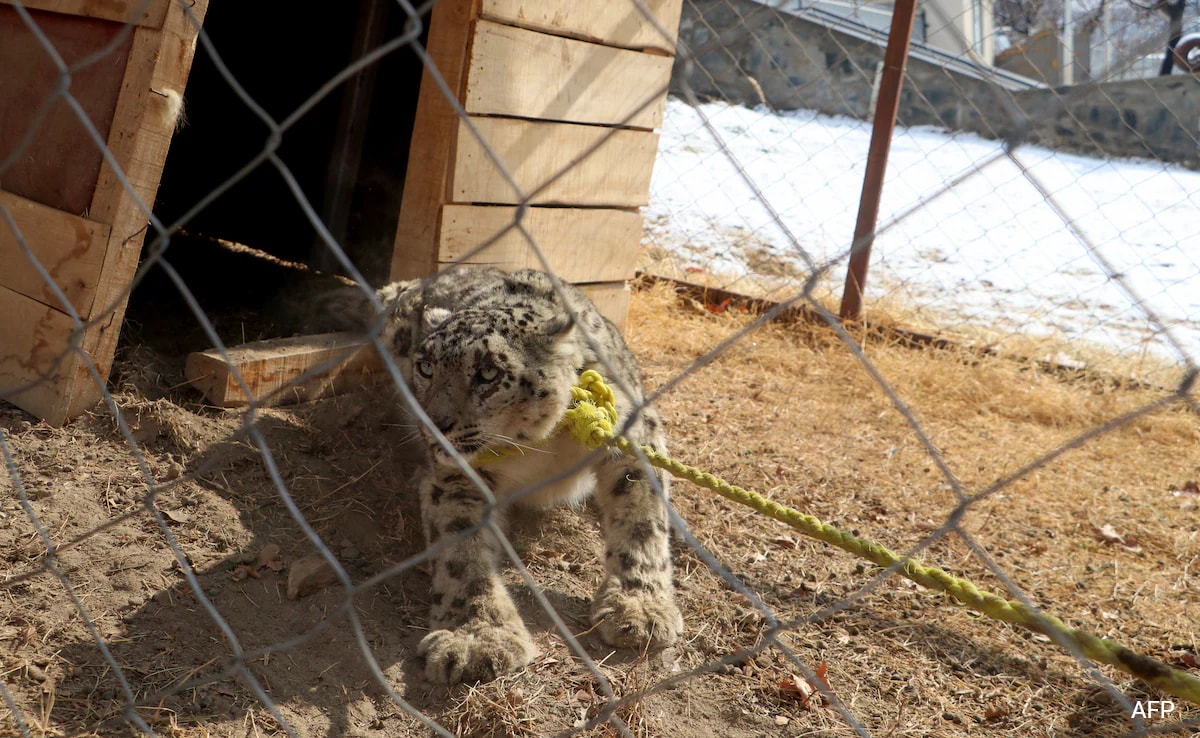
The snow leopard will be released back into the wild according to wildlife authorities in Afghanistan.
Faizabad:
Afghan authorities captured a rare snow leopard in the country’s mountainous northeast and were preparing to release it back into the wild after it reportedly killed dozens of livestock animals, a conservation group said Sunday.
The endangered leopard was captured on Thursday night after becoming trapped in a livestock enclosure in the rural Zibak district of Badakhshan province, savaging some 30 animals, the district’s deputy governor Abdulrahman Kasra told AFP on Saturday.
The juvenile leopard was transported to provincial capital Faizabad and was being held at the governor’s compound, he added.
The head of the Wildlife Conservation Society office in Badakhshan said a veterinarian had treated a minor injury to the big cat’s leg and that it would be released back into the wild.
“The authorities have promised us they will release the leopard back to the Zibak district soon,” Khorosh Sahel told AFP.
The mountainous northeast of Afghanistan is one of the few habitats of the elusive leopards, dubbed the “ghosts of the mountains”.
They are listed as “vulnerable” species by the International Union for Conservation of Nature (IUCN), with numbers decreasing due to climate change impacts, habitat loss and poaching.
Experts warn that warmer temperatures can push tree lines higher and prompt farmers to move further up mountains to plant crops and graze livestock, encroaching on snow leopard territory.
In a similar incident last year, some 40 livestock animals were reportedly killed by a snow leopard in Badakhshan.
The farmer whose animals were killed on Thursday said he had sought support from the government after losing his only source of income.
“The animals were the only asset I had to support my family,” Ganji Baig said.
Other Zibak residents told AFP they wanted authorities to follow through with the plan to release the leopard.
“I hope the Islamic Emirate will do its utmost to protect wildlife in Badakhshan so its natural heritage will be protected and the snow leopard will not disappear from the province,” resident Mir Saeed told AFP.
(Except for the headline, this story has not been edited by NDTV staff and is published from a syndicated feed.)




